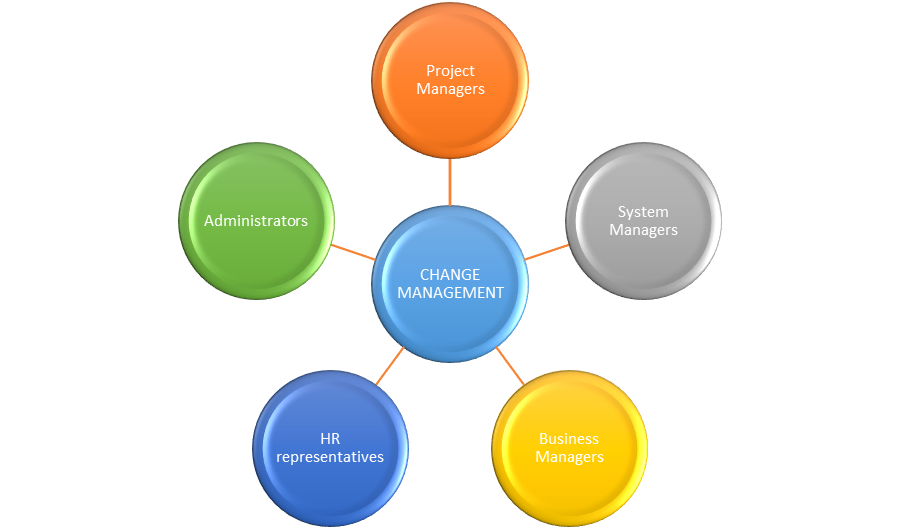
Manage Change Using Agile Techniques

Learn to Initiate Change Programs for your Organisation

Develop Communication Plans To Bring About Change

Learn to Manage Change From APMG Certified Instructors

Higher Salaries after Course Completion

Low Course Price
Developing a change management strategy provides direction and purpose for change management plans but it is not possible that the same approach is useful for all. There are different changes that occur in organisations with each of them requiring to be successful. Each impacts people and how they do their job. Change management strategies define the approach needed to manage change given the unique situation of the project or initiative. We at Pentagon Training provide the delegates to learn and upgrade their skills with the Change Management courses by providing them with the relevant knowledge.
All courses are offered by Pentagon Training Ltd, an Affiliate of The Knowledge Academy Ltd., an Accredited Training Organisation of The APM Group Ltd.
The target audience for this course include Project Manager, System Managers, Business Managers, HR representatives and Administrators Looking To Bring About and Manage Change. Those who want to renew their Change Management skills can also attend this course.

To appear for the Re-Registeration exam the delegate must be Change Management Certified professional. Though it is not mandatory, it is still recommended that the delegates sit for the exam only after having received accredited training.

Key Learning Points

Courseware

Tutor Support
APMG’s refreshed Change Management certification confirms with norms laid out by the Change Management Body of Knowledge. The new syllabus has a broad range of knowledge regarding the theory and practice of change management including:
The certifications are delivered by Accredited Training Organizations (ATOs) of APMG. By passing both Foundation and Practitioner examinations – candidates will have acquired the knowledge required for CMI’s ACM (Foundation) accreditation. They offer successful candidates a simpler route to personal certification, with only the experience remaining to be acquired.
After having achieved a professional degree in Change Management and having some expertise in the said field as well, the Change Professionals are required to continue updating themselves with the latest Change Management principles. This can be done by Re-registering for the Change Management exam before the expiry of the Certification. The delegates must re-register within a period of 3 to 5 years of their original certification. In case the candidates fail to do so or fail the re-registration exam, their certification will be withdrawn by the APMG.
Enquire Now
----- OR -------
Reach us at +44 1344 961530 or info@pentagonit.co.uk for more information.
Inverness is the managerial centre for the Highland Council area and is started as the capital of the Highlands. Inverness dishonesties near two important fight places: the 11th-century battle of Blàr name Fèinne in contradiction of Norway which removed place on The Aird and the 18th-century Battle of Culloden which removed place on Culloden Moor. It is the northernmost urban in the United Kingdom and dishonesties within the Great Glen at its north-eastern edge where the River Ness arrives the Moray Firth. At the latest, a settlement was recognised by the 6th century with the first royal charter being obvious by Dabíd mac Maíl Choluim in the 12th century.
Climate:
In common with Scotland, Inverness has a sea weather. Its protected location types it one of the driest parts of Scotland. Regarding snowfall, Inverness sees about 18.3 days of dwindling snow per year, and the record buildup of snowfall was 1 foot 2 inches in January 2010. The weather here is much unkinder than south-eastern Britain. The highest fever recorded is 29.7 °C in July 2006. Characteristically the real day should rise to 25.4 °C with a total of 2 days attainment, or beyond 25.1 °C. The lowest temperature logged is -18.7 °C in January 2010. Characteristically the coldest night should fall to -10.6 °C. Climate in this area has mild changes between highs and lows, and there is passable rainfall year-round. The Köppen Climate Organization subtype for this climate is Cfb.
Training Locations at which Change Management Re-Registration is presently scheduled at:
We are offering more than 250 courses at 91 locations in UK.